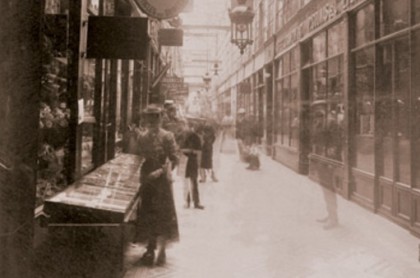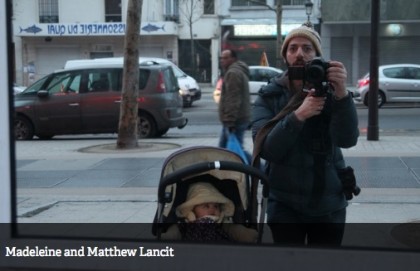The LIDF Documentary Photography Workshops and Folio Review are organised by the London International Documentary Festival with the participation of the Twenty Twenty Agency.
There are 24 workshops places available for both days and 40 participant-observer places for the Folio Review on Sunday 5th February.
The practices of photography and film-making share a rich history. In the past decade new technologies have caused boundaries to blur and opened up possibilities for professionals and citizen journalists alike. Twenty four photographers will be given the opportunity to take part in a 2-day intensive Documentary Photography workshop lead by internationally acclaimed photographers and photo editors with a limited number of places available to observe and participate in the folio reviews.
The Workshop and Folio Review
Aimed at advanced amateurs or young professionals with a good understanding of photographic practices, the event will lead two intimate groups of 12 individuals through an intensive 2-day program of shooting, mentoring, reviews, group critiques, and, culminating in the exciting opportunity to ‘pitch’ their work for folio review to leading industry professionals. Participants will work together with their peers and a professional photographer to develop their own individual visual language, photographic identity and practical, technical and conceptual skills required to compete in the ever-changing marketplace. The classroom sessions at the beginning and end of the day will focus on the practice of editing and group critiques. Together these activities form the backbone of the learning process and are integral to the workshop experience. The workshops will be based in central London, with good transport links enabling participants to travel easily around the city.
Tutors and Reviewers
Peter Dench (www.peterdench.com)
Peter is based in London working primarily in the Ad, Editorial and Portraiture fields of Photography. A distinctive and often quirky style has guaranteed regular commissions from a range of respected international clients. In 2010 Peter was placed 2nd in Advertising at the Sony World Photography Awards.
Clients Include: TIME, New York Times Magazine, STERN, GEO, Sunday Times Magazine, NEWSWEEK, Weekend Guardian, Telegraph Magazine, GQ, Tatler, Marie Claire, CN Traveller, NEON, Liberation, Esquire, Observer Magazine, Observer Sport Monthly, Highlife, Financial Times Magazine.
Frede Spencer (Founder of the Twenty Twenty Agency)
Born in Denmark 1973, Frede Spencer studied photography in Denmark before moving to England in 1996 to do a BA in Photography at Nottingham Trent. He moved to London in 2000 and started working at Katz Pictures, before moving to Corbis in summer 2004 as an assignment photo editor/agent. Frede now runs his own photographic agency, Twenty Twenty Agency, which represents editorial and commercial photographers. He’s interested in seeing editorial, advertising and portrait images.
Nick Cunard (http://www.nickcunard.co.uk)
Nick specialises in location portraiture, human interest feature stories, successfully pitching picture led feature stories direct to national/international editorial, longer term documentary flavored projects for print, web and exhibition, stills and moving images plus words. He is owner at Nick Cunard : Stills Moving, partner at CHI-photo, and contributor at Eyevine.
Clients include: Stern Magazine, The Guardian, London Evening Standard, The Independent on Sunday, Metro International, DFID, CIMA , LDA,
Preparation for the Workshop
Photographers should include a portfolio of 5 images when booking for the workshop. Portfolios should reflect your photographic interests and style. You should be comfortable with your equipment as you will be expected to arrive at the workshop ready to photograph. Participants will be asked to arrive with at least one project idea to develop during the workshop. So that everyone can make the most of the intensive sessions, we strongly recommend that each participant conduct preliminary research before the workshop begins, and be aware that they will be responsible for their own project coordination. The preparatory research should include contact liaison, access information and, if appropriate, some preliminary shooting (still or moving image). All projects must be conducted within central London and be feasible to complete within the workshop day. Due to the fast pace of the workshop, we recommend that participants produce and edit their work digitally, using their own laptops
Tuition
£285 (including coffee and lunch)
Observer Ticket for Folio Review
£40 (including coffee and lunch)
Travel & Accommodation
Participants are expected to make their own arrangements regarding travel and accommodation.
Dates
4th – 5th February 2017
Booking
To book for the 2 day workshop CLICK HERE
To book as a participant-observer for Sunday 5th February CLICK HERE
For queries please contact: [email protected]








